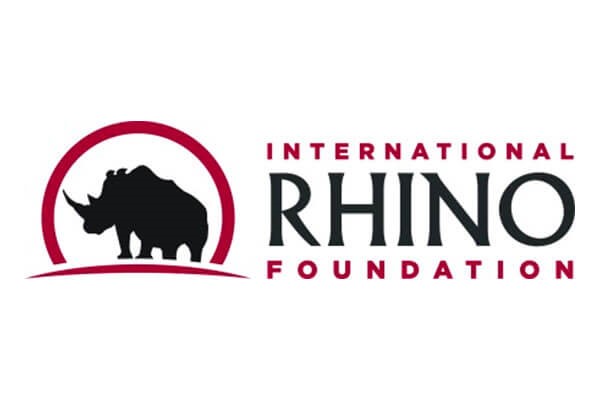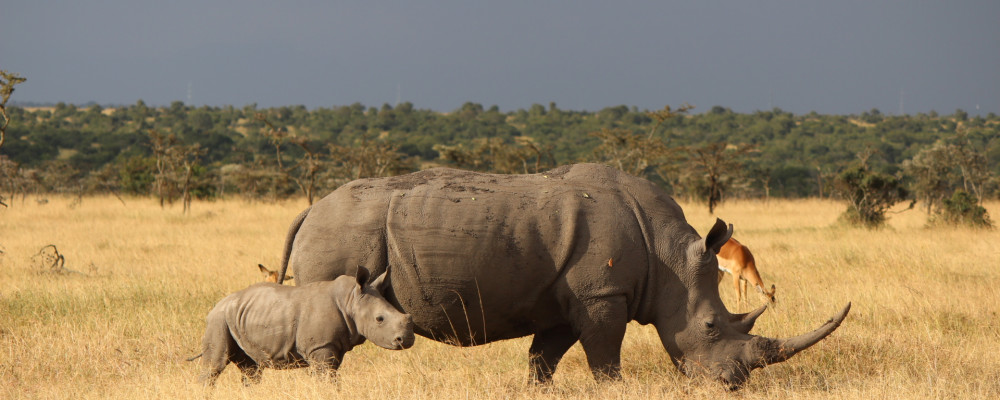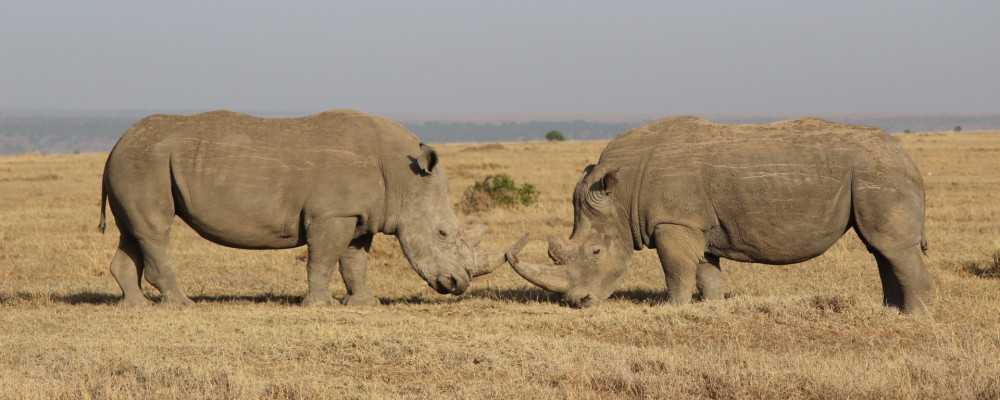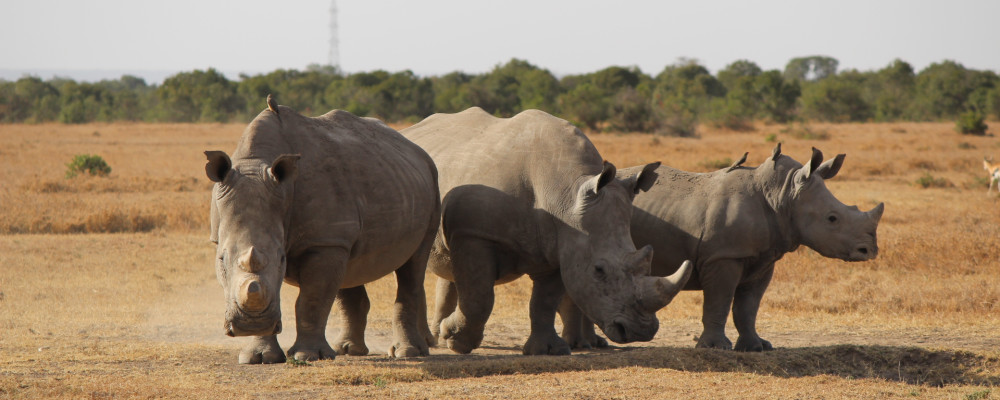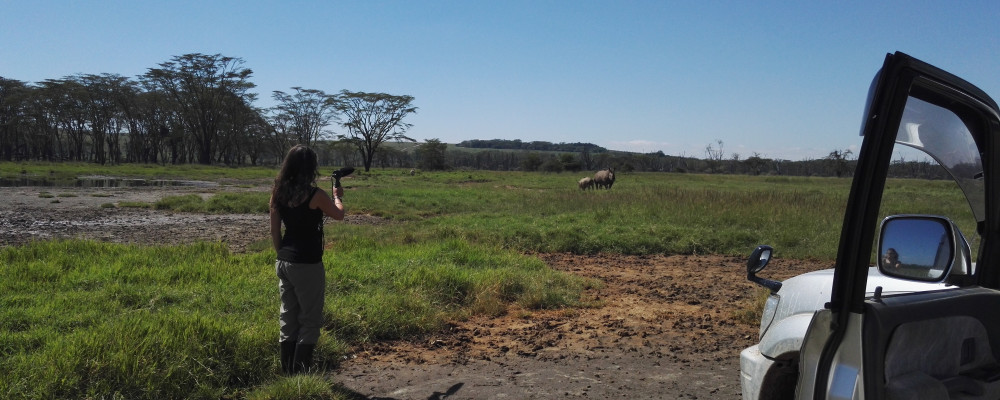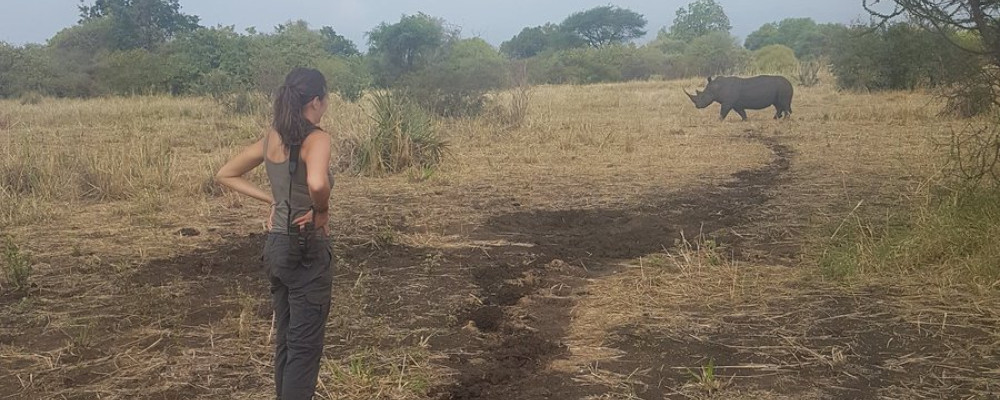This PhD research focuses on the factors that influence reproduction in white rhinoceros. Rhinoceros species worldwide are threatened with extinction due to the ongoing threat from illegal poaching. Maintaining viable captive populations of rhinoceros is therefore crucial. However, the breeding success of white rhinoceros in captivity is very low, and the reasons behind this are not well understood.
The research investigates how three important factors are related to white rhinoceros reproductive success; social behaviour, habitat quality and genetic relatedness. Work is undertaken in collaboration with rangers and scientists from the Kenya Wildlife Service to collect important data from several wild white rhinoceros populations in Kenya. This involves tracking rhinoceros and recording information on their natural social interactions, collecting dung samples to use as a source of genetic material, and conducting vegetation surveys in areas of habitat they are using.
This data will allow the factors which influence white rhino breeding success to be determined, which will provide important information that can be used to inform their conservation management. Information on the drivers of breeding success in the wild can be used to guide breeding management strategies in captivity that aim to improve white rhinoceros reproductive success.
|
|
|



